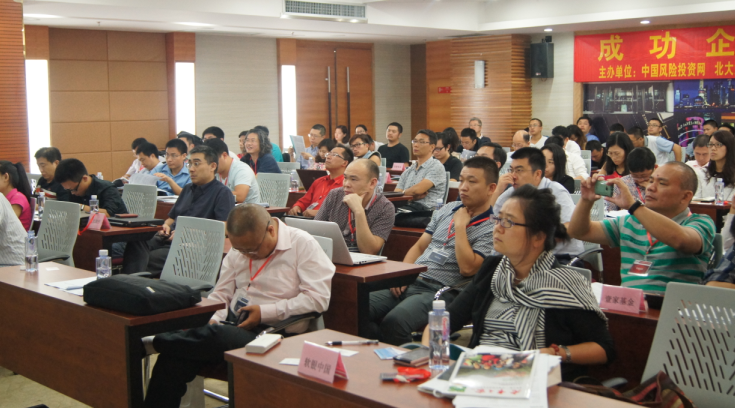本周的《纽约时报》是一堆无趣的新闻,只有一件值得注意的事:刚刚发布的全球贸易数据显示,中国的经济总量已经超过日本,成为仅次于美国的经济体!这个消息其实并不突然,中国赶超日本的趋势已经形成了多年,唯一的问题就是何时会实现超越,看来2010年夏天成了这条既定道路上的里程碑。
It's still a fit occasion, however, to pause and consider what this may mean for the world — especially because the average western business person may be assuming too little in that regard. They might suspect that the change will give more muscle to China-based companies venturing into world markets. They might worry that in their own efforts to tap into China's burgeoning domestic market, they will operate even more at the mercy of bureaucrats permitting only "capitalism with Chinese characteristics."
这属于正常情况,但我们需要考虑下这意味着什么,特别是西方的普通企业员工很少对此有所关注,他们可能会怀疑这种情况会为中国的企业注入更多的能量来冲击世界市场,他们也可能会担心在费尽全力打进中国市场之后,被官僚风气浓重的“中国特色资本主义”任意摆布。
What they may not expect is that China's increasing dominance will rewrite the rules of capitalism for everyone. Note that the prevailing form of capitalism at any time is simply the form being practiced by the most capitalists. As the center of gravity of global trade shifts toward China, the western style capitalism, with its heavy emphasis on free markets and private ownership, will no longer hold sway.
然而他们没有想到的是,中国日益增强的优势地位将会改写资本主义的(游戏)规则,请注意,任何时间出现的资本主义形式,都是被大部分资本家所操纵的,那么随着全球贸易重心向中国转移,以“自由市场”和“私有经济”为主的“西式资本主义”将不再占据主导地位。
Why isn't this obvious to everyone? In part, because the historical precedent for it is missing. When Japan in its turn surged ahead of so many western economies, it stopped short of changing the game. Perhaps in line with its peculiar proclivity to take the pioneering efforts of others and prosper by emulating them with great discipline — and, of course, post-war rather than pre-war technology — it created an economy that could be called a "release 2.0" of American style capitalism. Indeed, the US itself had a heavy hand in creating that copy, having shaped it in our own image in the aftermath of World War II.
为什么这点不是有目共睹的呢?部分原因是因为它缺少历史先例。曾经当日本的发展超越许多西方经济体时,它始终未能改变游戏(规则),或许是因为它一直倾向于通过严格地模仿别人来开拓市场(当然,战后比战前做得更好),从而实现繁荣,这种方式创造了一种称之为“解放2.0”的美式资本主义经济。事实上,美国在这件事上发挥了重要的作用,它在第二次世界大战后按照自身的情况在日本成功进行了复制。
There are no such circumstances in the 21st century to compel the new number two economy, the challenger economy, to adopt the rules of the dominant one. Japan, we think, was the exception that proves the rule. But its adoption of western ways has lulled many into end-of-history delusions. (We should note that to look only at China understates the case — the rapid growth of India, Brazil, and others where the rules look different just strengthens the argument.)
在21世 纪还没有出现过这样的情况——排名第一的经济体挑战新的排名第二的经济体,来迫使它适应老大哥制定的规则。我们认为日本在这些规则中是个例外,但它对“西 式规则”的适应程度也的确让许多国家最终都轻信了它(提醒:我们不要只顾着关注中国而低估了其它的国家——快速增长的印度、巴西,和其它一些规则不同的地 区)。
Around the same time that multinational executives were realizing that Japan, the economy in their rearview mirror, was larger than it appeared, the American public was also getting nervous about a future dominated by computers. We remember Ray Kurzweil bringing people up short at the time with a chart showing the advance of chess-playing computers versus humans. His simple plotting of numbers of "master points" gained each year by the best in the hardware and wetware camps showed that while humans made steady but tiny progress, the computers, proceeding from a low base, racked up exponential gains. The prediction of the chart was obvious — the computers' progress was headed for a point unreachable by Grandmasters for centuries. But conventional wisdom held firm. "Computers will never best a Kasparov," it was said, "because their mechanistic approach will always fall short of genius." Kurzweil only shook his head and asked "how can you look at these lines and believe that?"
大约在同一时间,许多跨国公司的经理们认识到他们时常关注的日本经济相对于刚刚出现的时候已经大有进步,而美国民众也开始担忧将由计算机主导的未来。我们还记得当年Ray Kurzweil通过图表向人们展示电脑在“人机对抗(国际象棋)”方面的进步,他每年都能在“硬件与湿件”(湿件:几乎一切的计算机都分成硬件类或软件类。然而,还有第三种重要的计算机类型:人脑,在虚拟对话中称为湿件——译者注) 露营活动中轻松获得“大师级分数”,通过这些向世人证明虽然人类依然在稳定地进步,但是那些基数较低的电脑却在实现着“指数级”的进步。图表上的预测是显 而易见的——电脑所达到的高度是几个世纪以来那些特级大师都无法企及的,但是人类的传统智慧依然是主流,“电脑永远无法像Kasparov(俄罗斯国际象棋棋手,国际象棋特级大师,前国际象棋世界冠军——译者注)那样出色,因为机械方式和‘天才’是永远无法相提并论的”,Kurzweil摇着头说:“看看这些线路,你能相信那些(突飞猛进)是真的么?”
We are at an analogous point. We read the news, we accept the fact that China is destined to be biggest. Yet most of us are not willing to see this shift as announcing that the rules of capitalism will evolve, ushering in an era of post-Western economics. The upsurging line, you may choose to believe, will merge into the existing curve. But we have news for you: from a "standing on the sun" perspective, it's clear this road is leading us somewhere different.
目前我们就处在类似的境地,通过新闻我们已经接受了“中国注定是最大的”这个事实,然而我们中的大多数人都不愿意在“后西方经济时代”看到资本主义规则发生某些变化,你可以说这是大势所趋,但我们应该认识到:从长远来看,很显然这条路将带领我们走向不同的地方!





